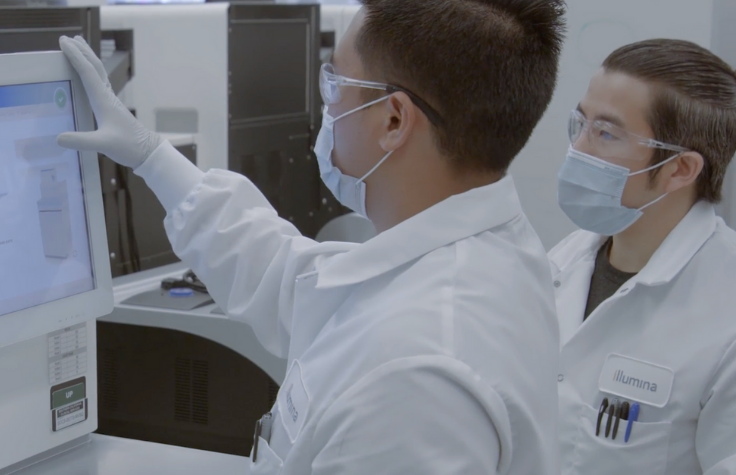
August 26, 2021
This month, Illumina donated US $1 million in sequencing capabilities to the Molecular Diagnostic Reference Laboratory at Kasturba Hospital, run by the Municipal Corporation of Greater Mumbai. Located in the Indian state of Maharashtra, where there are over six million cases of COVID infection, Kasturba knows genomic surveillance is a critical tool. And as a global life sciences company, Illumina’s mission is to support improved health and quality of life. During this pandemic, that mission has been magnified a hundred-fold. At present, Illumina supports COVID surveillance in more than 70 countries.
Sequencing from the start
Early morning on January 24, 2020, while their families prepared to celebrate the Chinese New Year, Illumina employees in China were packing up NextSeq™ 550 sequencers to deliver to the China Center for Disease Control and Prevention (CCDC). Afterwards, the team calibrated the instruments and trained CCDC staff. These machines were essential to help Chinese scientists and public health officials better understand the emerging coronavirus.
Illumina took a hands-on approach from day one: Delivering products, workflows, and support to our customers; enabling data and sample sharing; staffing customer labs to help them scale up; donating and discounting supplies.
Our employees worked closely with CCDC, the Gates Foundation, US CDC, Africa CDC, the Pasteur Institute, pharmaceutical and biotech companies, and many others to help monitor and control the virus. Because Illumina sequencing technology is the NGS standard worldwide, we provided a common language for all these groups to share information.
NGS has played a vital role in epidemiology research, analyzing infection clusters, identifying co-morbidities, validating diagnostics, and assessing different strains and how they evolve. These pieces have been essential to understand the disease, test treatments, and develop vaccines.
Earliest efforts
Even before Illumina delivered the NextSeq systems to CCDC, our instruments had been helping public health officials fight the outbreak. In December 2019, the Shanghai Public Health Clinical Center (SPHCC) deployed MiniSeq systems to sequence patients’ samples. SPHCC was one of the first to publish a viral genomic sequence.
Later, we opened the SPHCC-Illumina Microorganism Sequencing Research and Application Demonstration Center in Shanghai to accelerate microbiology research and clinical testing.
In April 2020, we introduced the Illumina SARS-CoV-2 Data Toolkit, a new suite of data analysis and workflow tools, making it easier to identify SARS-CoV-2 sequences in patient samples and share those findings with public databases.
To accelerate adoption, Illumina initially distributed the toolkit to the global research community at no cost. These tools integrated 15,000 Illumina sequencing systems worldwide, providing incredible resources to share information, understand transmission routes, track viral evolution, and determine whether viral mutations were impacting therapeutic efficacy.
Later that month, Illumina donated $1.4 million in sequencing systems and consumables to the African Union Commission to expand SARS-CoV-2 sequencing in the Democratic Republic of the Congo, Egypt, Ethiopia, Ghana, Kenya, Mali, Nigeria, Senegal, South Africa and Uganda.
In May Illumina and the Illumina Corporate Foundation committed $10 million to support anti-COVID efforts: $5 million for instruments and consumables to support SARS-CoV-2 surveillance, sequencing and monitoring; $2 million to COVID-19-related research; $1 million to the CDC Foundation COVID Emergency Response Fund; and $2 million to community-based initiatives.
In the UK, Illumina worked with Genomics England to sequence around 35,000 COVID-19 patients. The aim of the initiative was to uncover genetic factors in susceptibility to COVID-19.
NGS COVID testing and surveillance
On June 9, our high-throughput COVIDSeq™ Test received the FDA’s emergency use authorization, giving labs a new NGS tool to scale up diagnostic testing. Later, we released the COVIDSeq™ Assay, our research use only panel which runs on MiSeq, MiniSeq, and iSeq100 systems. The newer assay, while not a diagnostic, gives small, de-centralized labs the ability to detect and track the virus—a particular need in developing countries with no research or surveillance network.
Outside the lab, Illumina has made on-the-ground contributions on four continents. Partnering with the Bill & Melinda Gates Foundation, Illumina committed $60 million in sequencing capabilities to a global pathogen genomics initiative, which expands on the Africa Pathogen Genomics Initiative, helping create a comprehensive pathogen genomic network around the world.
COVIDSeq has not been FDA cleared or approved. This test is authorized by FDA under an EUA for the duration of the declaration that circumstances exist justifying the authorization of emergency use of in vitro diagnostics for detection and/or diagnosis of COVID-19. COVIDSeq is only authorized for use in laboratories in the U.S., certified under the Clinical Laboratory Improvement Amendments of 1988 (CLIA), 42 U.S.C. §263a, to perform high complexity tests.
For information on our new 96-sample COVIDSeq Assay for the MiSeq, MiniSeq, and iSeq 100 systems, click here.
To learn more about COVIDSeq for the NovaSeq 6000 and NextSeq 500/550/550Dx/2000, click here.
To read about supporting COVID-19 surveillance, click here.


